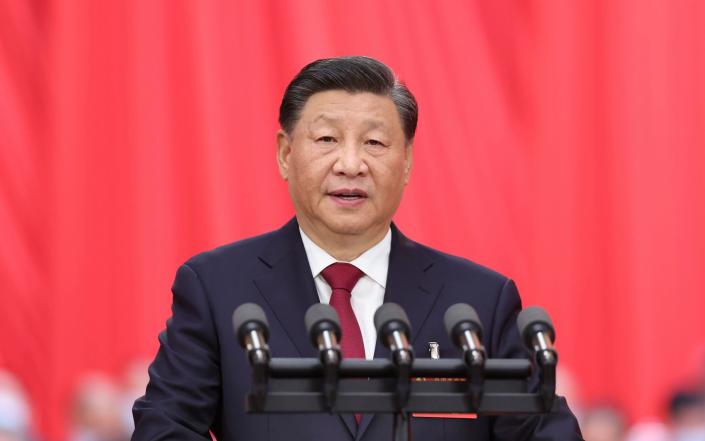
China has unexpectedly delayed economic data scheduled to be published just as President Xi Jinping bids for another five years in power.
Third quarter economic data, including GDP figures, were due to be published on Tuesday but have been delayed without explanation.
It comes as the country’s leadership gathers in Beijing for the Communist Party’s twentieth congress. President Xi is expected to be confirmed for a third term by the congress later this week, breaking with decades of tradition and making him China’s most powerful leader since Mao Zedong.
The delayed economic figures may have proved embarrassing for Communist officials as the report was expected to show China’s zero Covid policy and a crisis in the real estate sector continues to hobble growth.
Economists surveyed by Bloomberg expected GDP to rebound to 3.3pc in the third quarter after close to zero growth in the three months prior. This would still be a low growth rate for the world’s largest economy. Earlier this year China set a growth target of 5.5pc for 2022, which was its lowest annual target in 30-years.
President Xi renewed his commitment to zero Covid at the opening of the Communist Party congress on Sunday despite its economic impact, saying it was the “people’s war to stop the spread of the virus”.
The National Bureau of Statistics is yet to announce when the third quarter data will be released or why they have been held back.
It has also postponed the release of monthly economic indicators such as real estate and retail sales trends. The customs authorities pushed back the publication of September trade figures last week.
A senior official at the National Development and Reform Commission, Zhao Chenxin, told reporters that the economy had rebounded “significantly” in the third quarter.
“From a global perspective, China’s economic performance is still outstanding,” he said.
Nick Marro, lead for global trade at the Economist Intelligence Unit, told AFP that delaying the data suggests “a really ugly third quarter data print, at a time when the party is focused on highlighting its policy achievements, while minimising any missteps”.
Separately, Chinese state banks have also stepped up selling dollar reserves to prop up the Chinese currency, the renminbi, against the surging dollar. It has fallen 12pc against the US currency since the start of the year and was trading at 7.19 per dollar on Monday.




